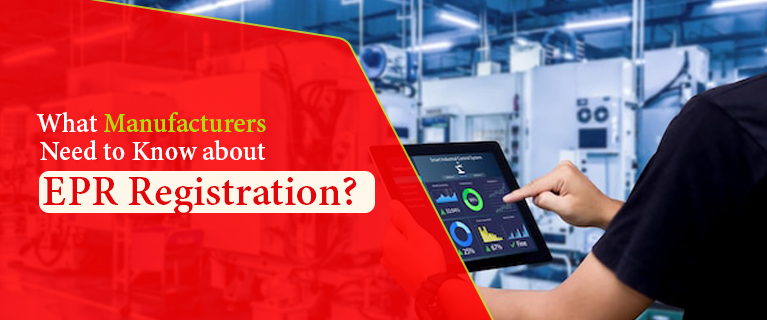Why Should You Consider EPR Registration?
In today's rapidly industrializing world, environmental concerns have become increasingly significant. As businesses expand and industrial activities intensify, so does the generation of waste and its environmental impact. Environmental issues like pollution, resource depletion, and waste management have become pivotal global concerns.
Extended Producer Responsibility (EPR) is a progressive environmental policy approach aimed at addressing these concerns. It's a concept that holds manufacturers, producers, and importers responsible for the entire lifecycle of their products, especially when it comes to waste management and disposal. EPR initiatives promote sustainability, reduce the burden on municipalities, and foster a more circular economy. This article explores the importance of EPR registration and why businesses should consider it.
1. Environmental Sustainability:
EPR is fundamentally rooted in environmental sustainability. By making producers responsible for their products from creation to disposal, it encourages eco-friendly design, materials, and processes. This, in turn, reduces the environmental footprint of products, from resource extraction to manufacturing, usage, and eventual disposal. It encourages the development of products that are easier to recycle or dispose of in an environmentally friendly manner.
2. Reduced Waste Generation:
One of the primary objectives of EPR is to minimize waste generation. When producers are financially responsible for the end-of-life management of their products, they have a strong incentive to design products with longevity and recyclability in mind. This reduces the volume of waste that ends up in landfills or incinerators, which is a significant step towards a more sustainable future.
3. Circular Economy Promotion:
EPR is closely aligned with the concept of a circular economy. linear economy where products are made, used, and discarded. In a circular economy, products are designed to be reused, refurbished, remanufactured, and recycled, creating a closed-loop system that minimizes waste. EPR registration plays a crucial role in fostering this transition towards a circular economy.
4. Cost Reduction:
For businesses, EPR registration can translate into cost savings . When producers are responsible for managing their products' end-of-life, it can lead to more efficient waste management processes. This can result in lower costs associated with waste disposal, as well as potential revenue from the recycling or reusing of materials.
5. Legal Compliance:
EPR programs are often mandated by law, and failure to comply can result in legal consequences. Many countries and regions have enacted EPR legislation to address waste management challenges. By registering for EPR, businesses can ensure they are in compliance with these regulations and avoid potential fines or penalties.
6. Positive Brand Image:
EPR registration can also enhance a company's brand image. Consumers are increasingly environmentally conscious, and they prefer businesses that demonstrate a commitment to sustainability. Registering for EPR and actively participating in responsible waste management can bolster a company's reputation and attract eco-conscious consumers.
7. Market Access:
In some industries and regions, EPR registration may be a prerequisite for market access. If a company wants to sell its products in areas where EPR programs are mandatory, registration is essential to operate legally and gain market share.
8. Innovation and Product Improvement:
EPR encourages innovation in product design and materials. Companies that embrace EPR often invest in research and development to create products that are easier to recycle or dispose of responsibly. This drive for innovation can lead to a competitive advantage in the market.
9. Long-Term Viability:
EPR programs are designed with long-term environmental goals in mind. By participating in these programs, businesses contribute to the long-term sustainability of natural resources, which is essential for their own continuity and the well-being of future generations.
10. International Standards:
As sustainability becomes a global concern, international standards and guidelines are emerging. EPR registration can help businesses align with these global standards, making it easier to operate in international markets and meet the expectations of global consumers.
Read Also This - How to Obtain EPR Registration for ImportsIn conclusion, EPR registration is not just a legal requirement but also a strategic move towards sustainability, cost savings, and market competitiveness. It reflects a commitment to environmental responsibility and aligns businesses with global trends towards a circular economy and reduced waste generation. As environmental concerns continue to grow, embracing EPR is not only an ethical




Comments
Post a Comment